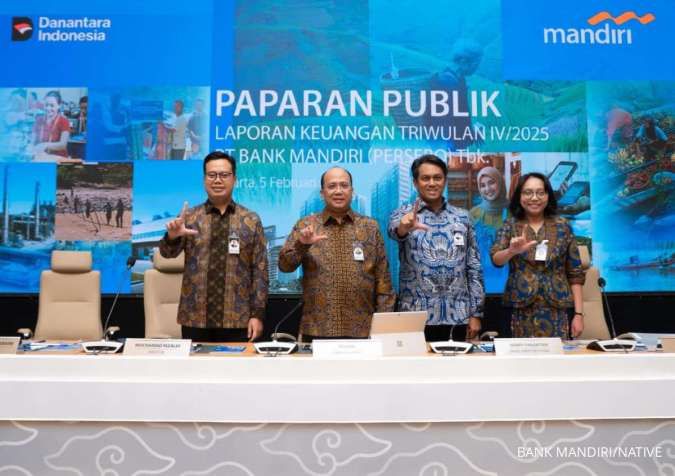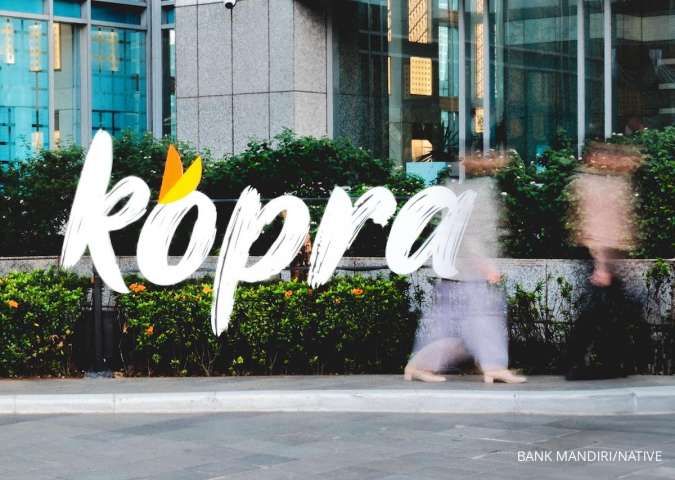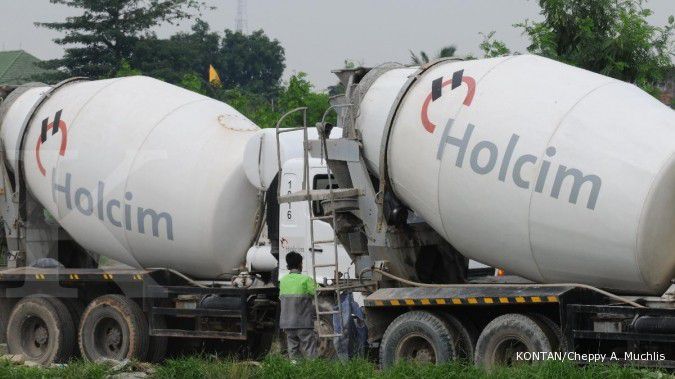SEMARANG. Residents of Rembang regency in Central Java have continued their protest against the planned construction of a cement factory in their area. Last week, hundreds of residents staged a rally in front of the governor’s office on Jl. Pahlawan, Semarang, protesting against the development of a cement factory in Watu Putih, Sale district, Rembang. The protesters — who were mostly women — arrived in tens of open trucks. They were grouped under the Central Java Food Sovereignty Caring Community Network. “We apologize to the public for the rally, but the situation has forced us to act,” protest coordinator Gunarti, an activist from the Sedulur Sikep traditional community, said at the rally. Protesters’ spokesperson Zaenal said that all residents of the Kendeng mountain ranges region had rejected the development of cement factories in Rembang, Pati, Blora and Grobogan, all in Central Java, by PT Semen Indonesia. He said the licenses to build the factories had been issued by then Central Java governor Bibit Waluyo. “As governor, Ganjar can revoke the licenses,” Zaenal said, referring to current Governor Ganjar Pranowo. The protesters, however, were not met by Ganjar, who was out of the province. They were instead received by Boedyo Dharmawan, an adviser to Ganjar. Speaking to the protesters, Boedyo said that the case was already being heard at the Semarang State Administrative Court (PTUN). “Let’s respect the PTUN. We will convey all the proposals and input you’ve given us,” he told them. Unsatisfied, the protesters demanded that construction work on the factories cease since the case was being heard at the court. Zaenal added that they gave the governor a week to stop the construction work, pending the court’s decision. The PTUN in Semarang decided last week to continue hearing the case. Presiding Judge Susilowati Siahaan turned down PT Semen Indonesia’s objection questioning the court’s authority to hear the charge against the environment license for the development of the cement factory in Rembang. In the charge, Rembang residents together with the Indonesian Forum for the Environment (Walhi) asked the court to revoke the governor-issued environmental license for mining activities granted to PT Semen Indonesia in Rembang. They said the license violated a number of laws, including Law No. 7/2004 on Water Resources, Law No. 26/2007 on National Spatial Planning and Provincial Bylaw No. 6/2010 on Provincial Spatial Planning. Residents from 14 subdistricts in Rembang, Central Java, have staged a series of rallies since last year, protesting the plan to build a cement factory in Watu Putih. They claim that a factory would impact nearby water resources and thus directly degrade their livelihoods. Walhi, an environmental NGO that has assisted the locals, estimates that the potential loss of water could reach 51 million liters. The company remains adamant that the construction of the plant in Rembang will go ahead, despite the legal challenge. Construction on the Rembang facility began in June, and it is expected to start production in 2016. The new plant will have the capacity to produce 3 million tons of cement per year. The factory is being built on 55 hectares of land located near a limestone quarry. (Suherdjoko)
Residents continue protest against cement factory
SEMARANG. Residents of Rembang regency in Central Java have continued their protest against the planned construction of a cement factory in their area. Last week, hundreds of residents staged a rally in front of the governor’s office on Jl. Pahlawan, Semarang, protesting against the development of a cement factory in Watu Putih, Sale district, Rembang. The protesters — who were mostly women — arrived in tens of open trucks. They were grouped under the Central Java Food Sovereignty Caring Community Network. “We apologize to the public for the rally, but the situation has forced us to act,” protest coordinator Gunarti, an activist from the Sedulur Sikep traditional community, said at the rally. Protesters’ spokesperson Zaenal said that all residents of the Kendeng mountain ranges region had rejected the development of cement factories in Rembang, Pati, Blora and Grobogan, all in Central Java, by PT Semen Indonesia. He said the licenses to build the factories had been issued by then Central Java governor Bibit Waluyo. “As governor, Ganjar can revoke the licenses,” Zaenal said, referring to current Governor Ganjar Pranowo. The protesters, however, were not met by Ganjar, who was out of the province. They were instead received by Boedyo Dharmawan, an adviser to Ganjar. Speaking to the protesters, Boedyo said that the case was already being heard at the Semarang State Administrative Court (PTUN). “Let’s respect the PTUN. We will convey all the proposals and input you’ve given us,” he told them. Unsatisfied, the protesters demanded that construction work on the factories cease since the case was being heard at the court. Zaenal added that they gave the governor a week to stop the construction work, pending the court’s decision. The PTUN in Semarang decided last week to continue hearing the case. Presiding Judge Susilowati Siahaan turned down PT Semen Indonesia’s objection questioning the court’s authority to hear the charge against the environment license for the development of the cement factory in Rembang. In the charge, Rembang residents together with the Indonesian Forum for the Environment (Walhi) asked the court to revoke the governor-issued environmental license for mining activities granted to PT Semen Indonesia in Rembang. They said the license violated a number of laws, including Law No. 7/2004 on Water Resources, Law No. 26/2007 on National Spatial Planning and Provincial Bylaw No. 6/2010 on Provincial Spatial Planning. Residents from 14 subdistricts in Rembang, Central Java, have staged a series of rallies since last year, protesting the plan to build a cement factory in Watu Putih. They claim that a factory would impact nearby water resources and thus directly degrade their livelihoods. Walhi, an environmental NGO that has assisted the locals, estimates that the potential loss of water could reach 51 million liters. The company remains adamant that the construction of the plant in Rembang will go ahead, despite the legal challenge. Construction on the Rembang facility began in June, and it is expected to start production in 2016. The new plant will have the capacity to produce 3 million tons of cement per year. The factory is being built on 55 hectares of land located near a limestone quarry. (Suherdjoko)



